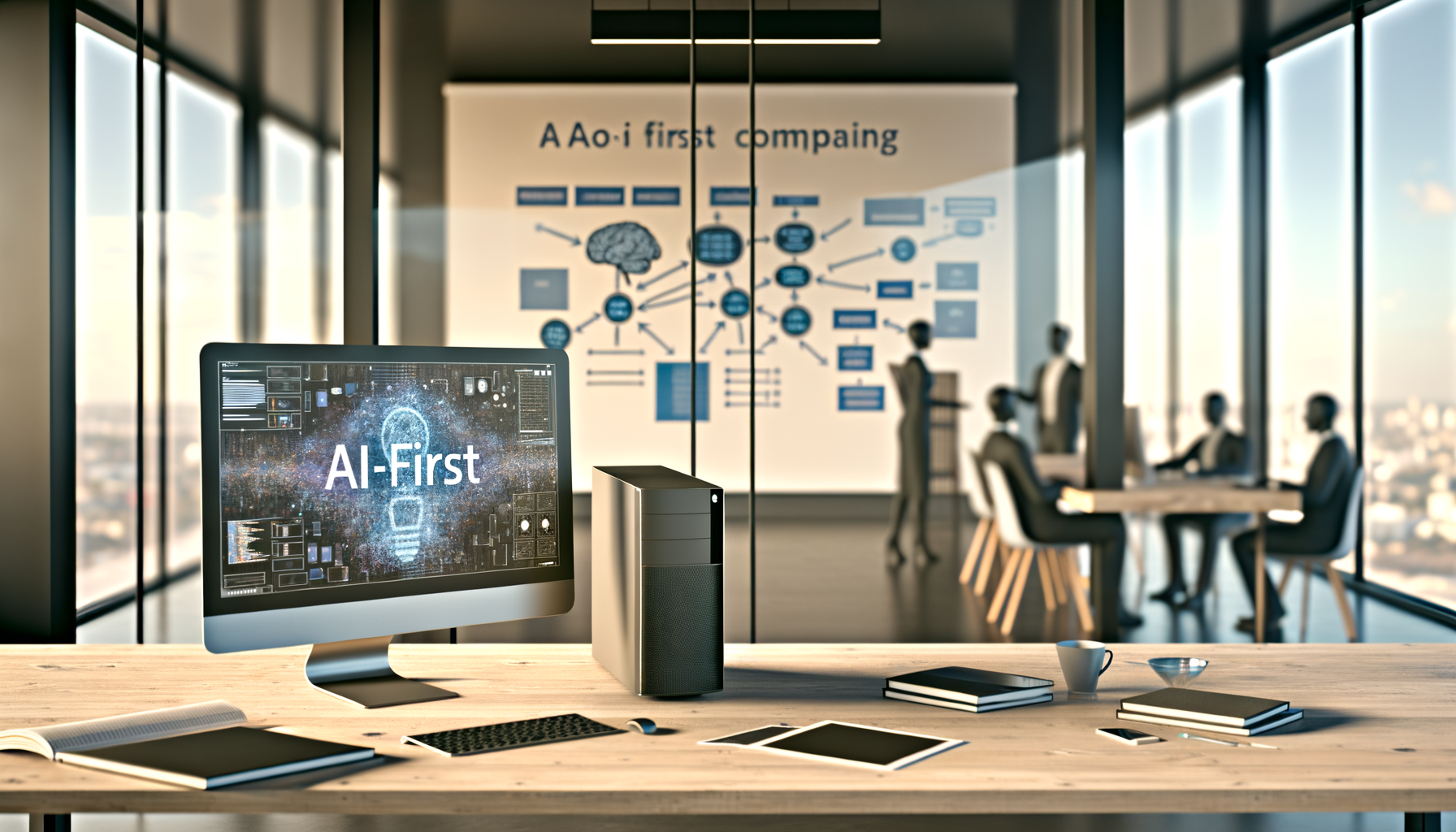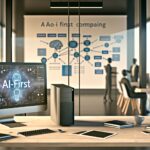Introduction
Envision a business environment characterized by decisions that are not only sharper but also deeply informed, where operations run smoothly, and customer interactions are uniquely personalized. This vision is not a fleeting fantasy; it has become an achievable reality for organizations that place artificial intelligence (AI) at the core of their strategies. The critical need to become an AI-first company is rapidly transitioning from an aspiration to a fundamental necessity for survival and growth in an increasingly competitive market. As we approach 2025, merely employing AI tools will not be sufficient. Truly AI-first organizations will seamlessly incorporate intelligent capabilities into their foundational strategies, processes, and cultures, fundamentally transforming their operational landscapes.
This article explores the nuances of adopting an AI-first mindset, detailing the essential pillars of this transformation while also highlighting the trends that are set to shape the journey ahead. As you read, you will develop a comprehensive understanding of the strategic shifts necessary to thrive in an era increasingly defined by AI-driven business practices.
The Imperative of Becoming an AI-First Company by 2025
What motivates companies to fundamentally reorient their identities toward becoming AI-first? The answer hinges on the quest for competitive advantage and operational resilience. An AI-first organization integrates AI not as a supplementary technology, but as the bedrock of decision-making, product development, and customer engagement strategies. This profound integration reconfigures workflows, enabling employees to make choices based on extensive data insights and analytics.
An increasing number of businesses are recognizing AI’s transformational potential. Research from PwC indicates that an impressive 25% of companies are expected to declare themselves AI-first by 2025. This declaration symbolizes a serious commitment to realizing AI’s power across the enterprise, driven by the ambition to elevate efficiency, champion innovation, and create profoundly personalized experiences for customers.
Key Drivers for AI-First Transformation
- Enhanced Decision-Making: AI empowers organizations with unparalleled insights derived from expansive datasets, leading to faster and more accurate strategic decisions. With AI, businesses can identify trends and patterns that would likely go unnoticed through manual analysis, resulting in more informed choices that can shape their direction.
- Operational Efficiency: The capacity to automate routine and mundane tasks frees valuable human resources, streamlining processes and significantly cutting operational costs. By taking over repetitive duties, AI allows employees to concentrate on higher-value tasks that necessitate critical thinking, creativity, and strategic foresight.
- Competitive Differentiation: Organizations that rigorously integrate AI into their operations often find themselves ahead of the curve when compared to their competitors. They are better positioned to develop innovative products and services that meet the evolving needs of customers, ultimately leading to an increase in market share.
- Personalized Customer Experiences: Through its ability to analyze customer behavior and preferences in real time, AI enables businesses to offer highly tailored recommendations and experiences, thereby fostering deeper customer loyalty. When companies understand individual preferences, they can create targeted marketing campaigns that resonate with specific audience segments.
As we approach 2025, the shift toward advanced reasoning models is also gaining momentum. These models surpass basic pattern recognition; they can engage in complex thought processes and draw inferences based on contextual cues. This capability is anticipated to be a defining trend by 2025, pushing organizations further toward thorough AI integration in their processes.
Core Pillars of Becoming an AI-First Company
What essential components must an organization effectively cultivate to truly embody an AI-first approach? Embarking on this journey requires a multifaceted strategy that encompasses data, technology, talent, and culture.
Data as the Cornerstone
Artificial intelligence flourishes in an ecosystem rich with data. Hence, an AI-first company places a premium on data collection, quality, and accessibility. Inadequate data can lead to erroneous AI outputs, which may adversely affect critical business decisions. To mitigate this risk, organizations must establish a robust data infrastructure, encompassing comprehensive data lakes and stringent governance policies. According to the Google AI Trends Report, data serves as the fundamental backbone of successful AI implementation.
- Data Strategy Elements:
- Collection & Curation: Businesses must diligently gather relevant data across all operations, ensuring its comprehensiveness and representativeness of the organization’s various facets.
- Quality & Integrity: Implementing rigorous processes to maintain data accuracy and cleanliness is essential. Flawed data can lead to misguided AI insights that may jeopardize the entire AI initiative.
- Accessibility & Security: Data should be readily available to both AI systems and authorized personnel, while robust security measures are implemented to protect sensitive information from unauthorized access.
- Governance: Organizations need to establish clear policies regarding data ownership, usage, and compliance to ensure ethical and responsible data management practices.
Coherent Solutions underscores the significant role of data preparation, advancing the notion that clean and readily accessible data is paramount to effective AI adoption.
Strategic AI Integration and Custom Solutions
Transitioning to an AI-first company requires moving beyond generic, off-the-shelf AI products. It demands significant investments in tailored AI solutions that specifically address unique business needs and seamlessly integrate with existing workflows. Custom AI models can deliver substantial competitive advantages by addressing distinct challenges and unlocking specific opportunities that generic solutions often overlook.
For instance, a business might design a custom AI model specifically to optimize its supply chain, leveraging unique internal data patterns. This model could analyze various elements, such as inventory levels, demand forecasts, and logistical constraints, to recommend optimal delivery routes and schedules. Implementing such tailored solutions can yield remarkable cost savings and enhance overall operational efficiency.
Moreover, strategic platforms are vital for effective AI integration. These platforms enable smooth incorporation of diverse AI tools and models throughout the enterprise, fostering collaboration and data exchange among various AI applications.
Talent, Culture, and Leadership
Technology alone cannot transform an organization into an AI-first entity; the people within the organization play a crucial role in this evolution. This transformation mandates workforce upskilling and the cultivation of an AI-aware culture. Employees must grasp AI’s capabilities and limitations, learning to interact effectively with intelligent systems to harness their full potential.
McKinsey emphasizes the importance of fostering a “superagency” within the workplace, effectively empowering employees to unlock AI’s complete potential. This involves providing training, creating new roles, and adapting existing positions to align more closely with AI functionalities. Leadership endorsement is crucial; leaders have the responsibility to champion AI initiatives, allocate the necessary resources effectively, and ensure that the strategic vision is communicated across the organization.
Checklist for Cultivating an AI-Ready Culture:
- Promote AI literacy throughout all teams, ensuring that even non-technical employees understand AI’s implications on their work.
- Invest in ongoing learning programs for AI tools and principles, enabling employees to stay abreast of the latest advancements.
- Encourage a culture rooted in experimentation and iterative development, fostering an atmosphere where teams can test new concepts and learn from any failures.
- Establish ethical guidelines governing AI deployment and use, ensuring that AI applications are developed and implemented responsibly and transparently.
- Motivate collaboration between human teams and AI systems, creating an environment conducive to mutual growth and success.
Navigating the Future: Trends for Becoming an AI-First Company
As organizations chart their course toward an AI-first future, what emerging trends will shape this journey? By 2025, several key developments will significantly influence how companies approach AI.
Advanced Reasoning and Frontier Models
The focus is transitioning toward more advanced AI models that can execute sophisticated reasoning tasks. These models are engineered to transcend basic pattern recognition, equipping AI to engage deeply with context and infer insights, allowing it to tackle more complex business challenges. This enhanced capability supports strategic planning and refines customer engagement efforts.
Ethical AI and Responsible Deployment
As AI continues to proliferate, the importance of ethical practices cannot be overstated. Organizations must prioritize the responsible development of AI, which entails addressing bias, ensuring transparency, and safeguarding privacy. Research from PwC underscores the necessity for robust frameworks surrounding responsible AI that build trust and reduce risk. Furthermore, Coherent Solutions reinforces the ethical dimensions of AI adoption trends, emphasizing the importance of responsible practices throughout AI deployment.
Hyper-Personalization and Predictive Capabilities
The power of AI to analyze immense data sets will usher in an era of unprecedented personalization. From bespoke marketing campaigns to individualized product offerings, customer experiences will be more tailored than ever. Additionally, predictive AI will enable organizations to anticipate emerging trends and customer behaviors, fostering a proactive approach that enhances service and accelerates sales.
AI as an Integrated Operating System
For AI-first organizations, AI will evolve beyond being merely a standalone tool; it will become the integrated operating system that underpins the entire business. This means AI will permeate every department and process, facilitating informed decision-making and enhancing daily operations.
Your Roadmap to Becoming an AI-First Company
How can your organization embark on this essential transformational journey? The pathway to establishing an AI-first company necessitates a strategic and phased approach.
- Assess Current Capabilities: Begin by evaluating the existing data infrastructure, technological readiness, and workforce skill sets. Identify any gaps that must be addressed to ensure a robust foundation for AI integration.
- Define Clear AI Strategy and Goals: Articulate specific business challenges that AI can address. Establish measurable objectives for AI initiatives while ensuring alignment with overarching business strategies.
- Build Robust Data Infrastructure: Invest in sophisticated tools and processes to facilitate data collection, cleansing, storage, and governance, ensuring data is of high quality and readily accessible to support effective AI operations.
- Pilot Projects and Scale: Initiate small yet impactful AI projects to explore the potential of AI. Learn from these initial implementations and progressively scale successful solutions across the organization.
- Invest in People and Culture: Develop comprehensive training initiatives to elevate employee skills and foster collaboration in environments where humans and AI can thrive together. Recruit AI experts as needed to fill existing knowledge gaps.
- Establish Ethical AI Frameworks: Design clear guidelines for responsible AI use, emphasizing fairness, transparency, and accountability in all AI systems.
The journey toward becoming an AI-first organization is continuous, requiring adaptability and a committed drive for innovation.
Conclusion
Transitioning to an AI-first company is more than a simple technological upgrade; it signifies a profound transformation in how businesses operate and compete within the contemporary landscape. By prioritizing data, investing in tailored AI solutions, and cultivating an AI-literate culture, organizations can position themselves for enduring success. As AI capabilities advance and integration deepens in the years leading to 2025, those that embrace this strategic imperative will lead the way into a new era of intelligent business.
Sources
- Morgan Stanley Insights
- Worklytics Blog
- Coherent Solutions Insights
- PwC AI Predictions
- Vocal Media
- McKinsey Superagency Insights
- Google AI Trends Report
.





Leave a Reply